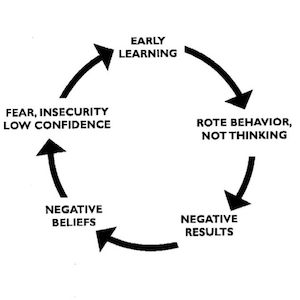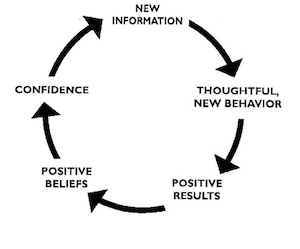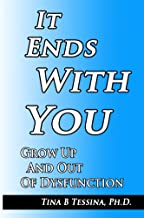
 |
| CAN PEOPLE CHANGE? I am often asked this question by clients, and by journalists seeking quotes. My whole forty-plus-year career is based on my conviction that people can change, and experience has shown me that most of my clients can change, if given the right guidance. Please note: you can’t change other people; but you can change how you interact with people who you find difficult to deal with. Changes can be relatively simple, like habit changes: If you want to change a habit (for example, to develop a habit of wearing your car seat belt) you develop a pattern that incorporates the change (I’ll get in my car, put the key in the ignition, fasten my seat belt, and then start car.) At first, you may even need a written note to remind you of the pattern, but if you consistently follow your new routine, it will be a pattern in a week or two. If you do it for several weeks, it will become ingrained enough to feel automatic you won’t need to think about it at all. Changing even really tough patterns, like smoking, is possible if you break it down into each smoking habit you have (after dinner, at work, hanging out with friends) and develop a replacement pattern for each one (chew mint gum after dinner, take a short, brisk walk during work breaks, hang out in nonsmoking places with friends, chew on a straw when a craving strikes) and follow each new pattern consistently until all are changed. Having something different to focus on makes the psychological withdrawal easier. It’s also possible to change your deeper, more ingrained personality characteristics. For example, clients who have problems with attachment (they may become clingy, or they may be standoffish and unable to commit) need to learn first, to become attached to themselves. A combination of depth psychology techniques (learning to connect with your inner self) and Cognitive Behavioral Therapy (learning relationship skills) can create lasting change. It Ends with You: Grow Up and Out of Dysfunction (which many readers have said enabled them to change) presents The Functional and Dysfunctional habit cycle, which shows how change works in the psyche.  The Dysfunctional Habit Cycle: 1. Early learning: What we learn as young children 2. Rote behavior, not thinking: Acting out of habit, reacting without thinking 3. Negative results: The result of unthinking reaction 4. Negative beliefs: Reinforced by negative results 5. Fear, insecurity: Hopelessness/low self-esteem engendered by negative thinking and results 6. Reinforce old habits: Repetition ingrains the habits and thinking. New, Functional Habit Cycle:  1. New learning: Opens up possibilities—may come from therapy, books, new people, experience 2. Thoughtful, new behavior: Willfully acting on new learning—hard at first 3. Positive results: Produced by thoughtful choices and responses 4. Positive beliefs: Affirmed by positive results, new learning becomes ingrained 5. Confidence: Repeated success brought on by new behavior and beliefs creates confidence 6. Reinforce new habits: Repeating the cycle strengthens thoughtful choices and self-confidence By making small changes in the right direction, you can, over time, change your habits and even your personality to a large degree. It takes some time and effort, and may take guidance from an experienced professional, but it’s very possible. I wish you good luck in changing anything you want to change. © 2022 Tina B. Tessina (Adapted From It Ends with You: Grow Up and Out of Dysfunction) 
Author Bio: Tina B. Tessina, Ph.D.is a licensed psychotherapist in S. California since 1978 with over 40 years’ experience in counseling individuals and couples and author of 15 books in 17 languages, including Dr. Romance’s Guide to Finding Love Today; It Ends With You: Grow Up and Out of Dysfunction; The Ten Smartest Decisions a Woman Can Make After Forty; Love Styles: How to Celebrate Your Differences, The Real 13th Step, How to Be Happy Partners: Working it Out Together; How to Be a Couple and Still Be Free, and her newest, Money, Sex and Kids.. She writes the “Dr. Romance blog, and the “Happiness Tips from Tina” email newsletter. Online, she’s known as “Dr. Romance.” Dr. Tessina appears frequently on radio, TV, video and podcasts, including on GenerousMarriage.com. She tweets @tinatessina. | ||
| RETURN TO HAPPINESS TIPS • GO TO HOME PAGE | ||
| Phone: (562)438-8077 | for permission to reprint, email: tina@tinatessina.com All material ©2022 Tina Tessina. All rights reserved. |